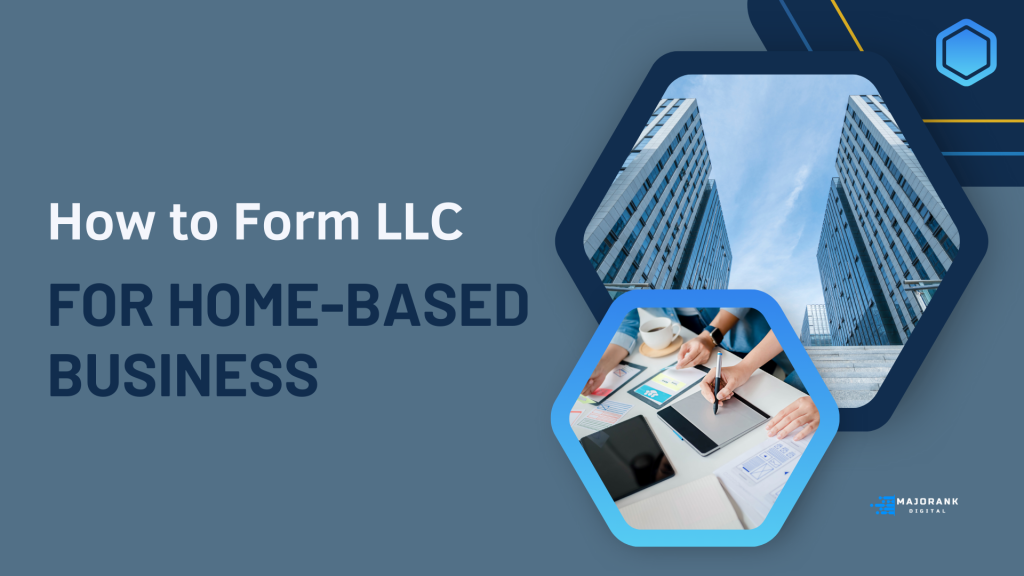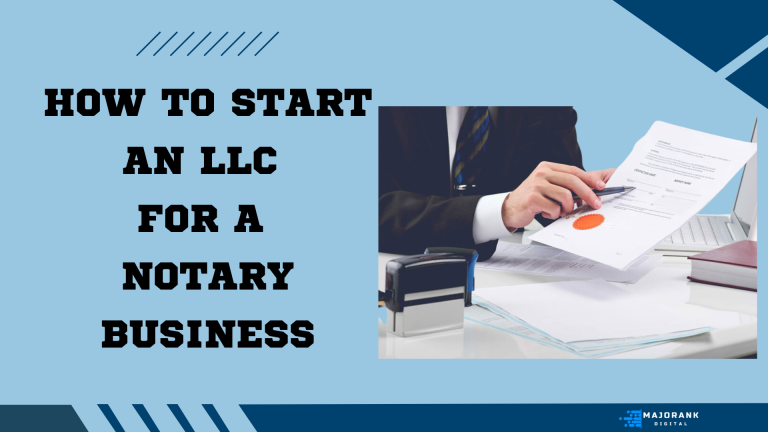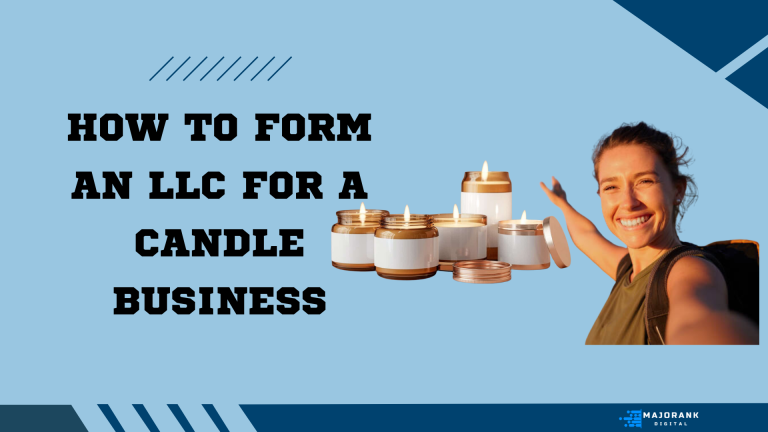
Running a home-based business offers flexibility, convenience, and low overhead costs. However, as your business grows, it’s important to protect your personal assets and establish a solid legal structure. Forming a Limited Liability Company (LLC) for your home business is a smart way to shield yourself from liability while maintaining tax flexibility.
In this guide, we’ll explain how to form an LLC for your home-based business and the benefits it offers.
What is an LLC?
A Limited Liability Company (LLC) is a business structure that provides the liability protection of a corporation while offering the operational flexibility and tax advantages of a partnership or sole proprietorship.
When you form an LLC, your personal assets—such as your home, savings, and personal possessions—are generally protected from business liabilities and debts. LLCs also allow for pass-through taxation, meaning the business itself doesn’t pay federal income tax. Instead, profits and losses are reported on the owner’s personal tax return.
Why Choose LLC for Home-Based Business?
- Personal Liability Protection: Forming an LLC ensures that your personal assets are protected in the event that your home business faces legal action, debt collection, or other liabilities. This separation of personal and business assets is crucial for protecting your home, car, and savings.
- Tax Benefits: LLCs are pass-through entities by default, meaning the profits and losses of the business are passed through to the owners and taxed on their personal income tax returns. This can simplify tax filing and potentially reduce the overall tax burden. Additionally, LLC owners may be eligible for business deductions such as home office expenses, utilities, and equipment.
- Flexibility and Simplicity: Unlike corporations, LLCs have fewer formalities, such as annual meetings and extensive record-keeping requirements. This makes them easier to manage, which is especially beneficial for home-based entrepreneurs who are running their businesses with limited resources.
- Credibility and Professionalism: Operating under an LLC can help your home-based business appear more professional to clients, suppliers, and potential partners. Having “LLC” attached to your business name demonstrates that you’ve taken the steps to formalize and protect your business.
Also Read About – HOW TO START LLC FOR CONSULTING BUSINESS
Steps to Form LLC for Your Home Business
- Choose Your LLC Name
Your LLC name should be unique and not already in use by another business in your state. It should also include “LLC” or “Limited Liability Company” to indicate its legal structure. Check with your state’s business registry to ensure that your chosen name is available. If your home business operates online, make sure the domain name is also available.
- Appoint a Registered Agent
A registered agent is responsible for receiving legal documents and official notices on behalf of your LLC. The agent must have a physical address in the state where your LLC is formed. You can be your own registered agent or hire a professional service. Some states allow businesses to use a commercial registered agent service, which can be helpful for home-based businesses that don’t want to use their home address publicly.
Note – I will always recommend Northwest Registered Agent as a reliable registered agent.
- File Articles of Organization
The Articles of Organization is a document that officially registers your LLC with the state. It includes basic information such as your LLC’s name, address, registered agent, and the names of the members. You’ll need to file this document with your state’s Secretary of State or equivalent office and pay the required filing fee, which varies by state.
- Create an Operating Agreement
An operating agreement is an internal document that outlines how your LLC will be managed, the roles and responsibilities of its members, and how profits and losses will be distributed. While not required in all states, having an operating agreement is highly recommended, even if you are the sole owner of the LLC. It formalizes the separation between your personal and business assets and helps prevent future disputes.
- Obtain an EIN (Employer Identification Number)
An EIN (Employer Identification Number) is required by the IRS for tax purposes and is necessary to open a business bank account, hire employees, and file taxes. You can obtain an EIN for free through the IRS website. Even if you don’t have employees, an EIN can help separate your personal and business finances.
- Register for State Taxes and Obtain Necessary Permits
Depending on your state and the nature of your home business, you may need to register for state taxes such as sales tax if you’re selling products. Some localities also require home-based businesses to obtain permits or licenses, even if you don’t have a physical storefront. Be sure to check with your local government to ensure you comply with all regulations.
- Open a Business Bank Account
To maintain the liability protection provided by your LLC, it’s important to keep your personal and business finances separate. Open a business bank account in your LLC’s name, using your EIN. This will simplify accounting, tax preparation, and financial tracking for your home business.
- Get Business Insurance
Even with the protection of an LLC, having business insurance is crucial for home-based businesses. General liability insurance can cover legal claims or accidents that occur in connection with your business, while home-based business insurance can cover business property, equipment, and client interactions within your home. Consult an insurance professional to determine the coverage that’s right for your business.
Maintaining Your LLC
Once your LLC is formed, you must meet ongoing state requirements to keep it in good standing. This may include filing an annual report, paying any associated fees, and maintaining a registered agent.
Make sure to comply with your state’s requirements to avoid penalties or having your LLC dissolved.
Home Office Deductions
As an LLC owner operating a home business, you may be eligible for home office tax deductions. These deductions allow you to write off certain expenses related to the portion of your home used exclusively for business purposes.
This can include utilities, rent, mortgage interest, and maintenance costs. Be sure to consult with a tax professional to ensure that you are eligible and following IRS guidelines.
Conclusion
Forming an LLC for your home business is a wise decision that provides liability protection, tax benefits, and an air of professionalism. By following the steps in this guide, you can establish your LLC and protect both your business and personal assets.
Remember to consult with a legal or financial professional if you have questions or need assistance. With the right structure in place, your home-based business will be set up for success!






